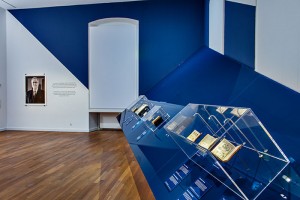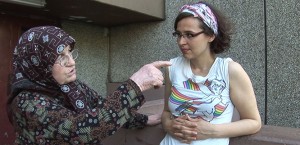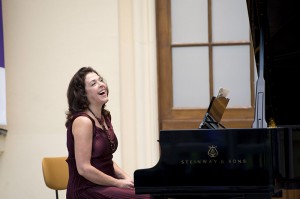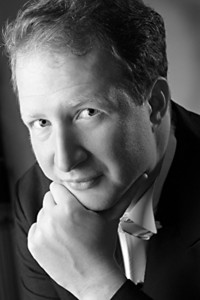An Interview with René Braginsky
When did you start collecting and how large is your collection?
René Braginsky: I started collecting books more than twenty years ago. It was my son’s Bar Mitzvah, and I was looking for an illustrated blessing for the celebration. Since I could not find one, we made do with a copy. For his wedding, however, we were able to reproduce a blessing from our own collection. As I slowly acquired a taste for collecting, I bought more objects, and of increasingly quality, whenever possible. A good friend of mine, an older collector, encouraged me. The Judaica collection now comprises more than 700 pieces: books mainly, but also illustrated wedding contracts and Esther scrolls.
What motivates you to collect Hebrew manuscripts? Do you collect with a specific objective or mission in view?

Interior view of the special exhibition “The Creation of the World. Illustrated Manuscripts from the Braginsky Collection” © Jewish Museum Berlin, photo: Martin Adam
I’m interested, first and foremost, in the direct connection with Jewish history, with my view of Jewish history. I find the sheer variety of illustrations fascinating, as well as the regional and national influences they display. Jewish books in Germany are primarily German books, just as Jewish books from Spain are primarily Spanish and those from Morocco Moroccan. Jews lived in diverse regions, in a diaspora, and the illustrations in the books reflect this. And these old books so full of erudition bring me peace and make me confident, too, that whatever is really important will always survive. The mission, if there is such a thing, is my wish to share them freely, instead of hiding these treasures from the world. That is why we published websites (braginskycollection.com und braginskycollection.ch) , put two iPad apps online (Braginsky Collection und Braginsky Collection Berlin) and chose to exhibit a part of our collection in Berlin, for the fifth time. Over the years, the exhibitions and online sources have enabled tens of thousands of people all over the world—Jews and non-Jews —to share our enjoyment of the collection.
Do you believe the market for collectors of Judaica and Hebrew manuscripts has changed over the last few decades? Have you come across any counterfeiters or crooked dealers? → continue reading

Canan Turan with her grandmother
© Adriana Uribe
In our series of events “New German Stories” we present different perspectives on the immigration country Germany. That immigrants from Turkey, Vietnam, Poland, India and Cameroon and their descendants have stories to tell is nothing new—the novel twist is, that they present them here as German stories. On Tuesday, 8 July, director Canan Turan will be a guest of the Academy of the Jewish Museum. In her film KIYMET, she tells the story of her grandmother, who migrated to Berlin from Turkey in the early 70s. We asked Canan three questions about her project:
How did the idea to make a film about your grandmother Kıymet come about? → continue reading
An Interview with Elena Bashkirova
From 7 to 11 May, we will host a chamber music festival in the museum’s Glass Courtyard. Katharina Schmidt-Narischkin and Sylvia Winkler of our press office spoke in advance with the festival’s director Elena Bashkirova.
Press office JMB: As festival director, what themes have you chosen to emphasize this year?

Elena Bashkirova, festival director and pianist
© Monika Rittershaus
Elena Bashkirova: Our themes have been determined this year by two anniversaries: on the one hand, the start of the First World War 100 years ago and its impact on music; on the other hand, the 150th birthday of Richard Strauss. Both anniversaries augur a varied program for “intonations”: 1914 saw an astonishing richness of musical styles, which our concerts will reflect. And Strauss composed chamber music nearly his entire life, so I have a wide range of pieces and genres to choose from.
Every year at “intonations,” chamber music classics can be heard together with unknown works. What composers should visitors expect to discover in this third season?

David Robert Coleman, composer and conductor © private
Rudi Stephan was an extraordinary discovery for me. I heard Music for Orchestra and Violin a few years ago here in Berlin. I was impressed and deeply touched by it. As I was putting together the programs for “intonations,” I found his gorgeous chamber music and was delighted to have the chance to present it here with my colleagues. Rudi Stephan died in the war when he was 28. Given his talent, he would otherwise have certainly provided us with more outstanding music.
There will also be another world premiere: the fourth concert, on Saturday 10 May, will open with David Coleman’s “Three pieces for clarinet and piano.” Another significant composer this year will be Karol Szymanowski. He has his own tonal language, writing hauntingly beautiful music that unfortunately is played much too seldom. → continue reading



